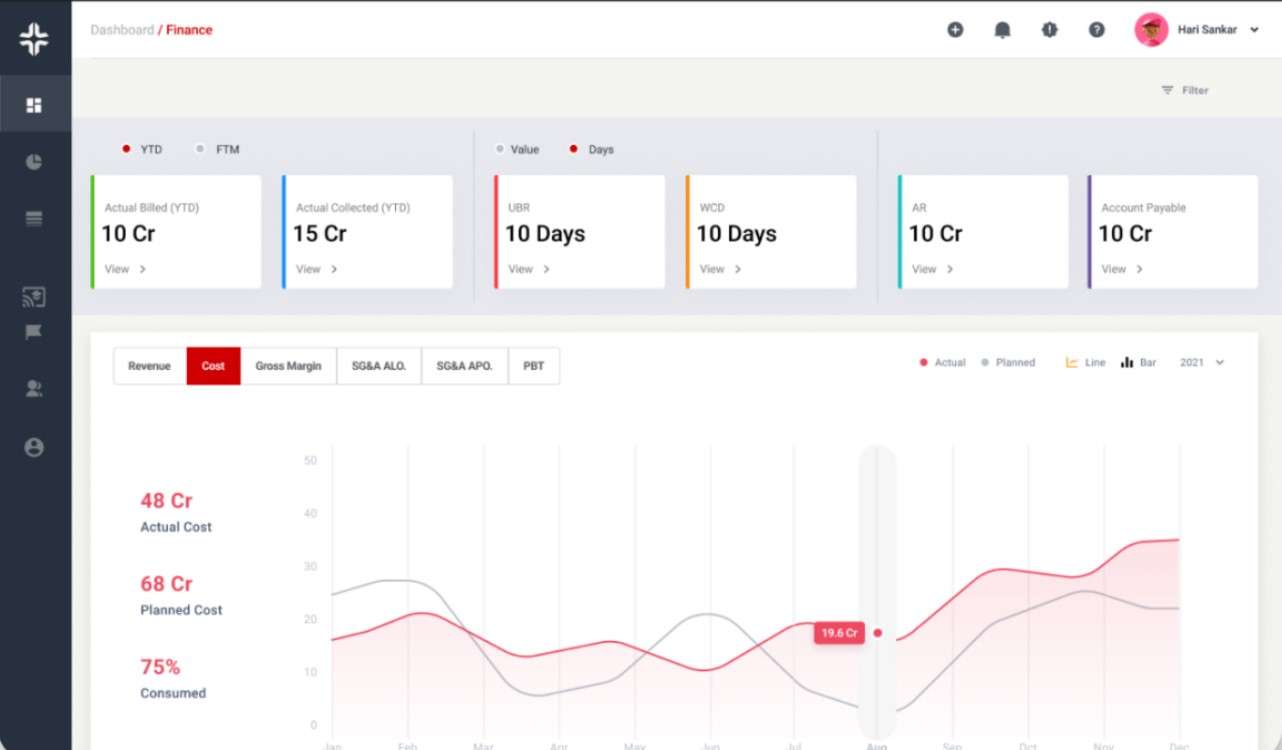Home » PSApedia
Total Operational Costs
Improve efficiency and control expenses with Total Operational Costs solutions.

What Is Total Operational Costs?
Total Operational Costs refer to the aggregate expenses incurred by a company to maintain its day-to-day activities and functions. It encompasses various expenses essential for running the business, excluding direct production costs.
In Professional Service Automation (PSA), Total Operational Costs refer to the sum of all expenses related to running the business. This includes direct costs like labor and materials, as well as indirect costs such as administrative expenses, marketing, and overhead.
The Impact of Operational Costs on PSA Firms
Total Operational Costs hold immense significance as they represent the core expenses necessary for business operations. Analyzing these costs aids in evaluating overall business efficiency, identifying cost-saving opportunities, and ensuring financial sustainability.
1. Profitability: Operational costs directly affect the bottom line and overall profitability.
2. Pricing Strategies: These costs influence how services are priced and the competitive positioning of the firm.
3. Financial Health: Managing operational costs is critical for maintaining the financial health and sustainability of the business.

The Impact of Operational Costs on PSA Firms
How to calculate Total Operational Costs?
Total Operational Costs are calculated by adding up all expenses involved in the day-to-day running of the business. This requires a comprehensive accounting system that tracks all categories of business expenses.
The formula to calculate Total Operational Costs involves summing up all operational expenses:
Total Operational Costs = ∑i = 1 Operational Expenses
Operational expenses include costs related to rent, utilities, salaries, marketing, maintenance, and other day-to-day expenses.
Example:
Consider a company with the following operational expenses in a month:
- Rent: $5,000
- Salaries: $25,000
- Utilities: $3,000
- Marketing: $8,000
- Maintenance: $4,000
Calculating the Total Operational Costs:
Total Operational Costs=5,000+25,000+3,000+8,000+4,000=45,000
Hence, the Total Operational Costs for this company amount to $45,000 for that month.
Operational Costs vs Other Financial Metrics
Total Operational Costs, when compared to measurements such as fixed costs or variable costs, provide a full view of all continuing spending required for business survival. While fixed costs are stable regardless of business activity and variable costs vary with output or sales, operational costs span a broader range of day-to-day expenses.
1. Net Income: While net income is the profit after all expenses, operational costs are a subset of these expenses that focus on the cost of business operations.
2. Return on Investment (ROI): ROI measures the gain or loss generated on an investment relative to the amount of money invested, which is different from the measurement of operational expenses.
| Metric | Definition | Importance / Use |
|---|---|---|
| Operational Costs | Expenses incurred in day-to-day operations | Represents the costs associated with running the core business activities |
| Gross Margin Percentage | Percentage of revenue retained after deducting COGS | Indicates the efficiency in providing goods or services |
| Operating Income | Profit earned from operations after deducting operating expenses | Measures profit from core business activities after expenses |
| EBITDA (Earnings Before Interest, Taxes, Depreciation, and Amortization) | Measure of a company’s operating performance | Reflects the operational profitability of a company |
Utilization of Total Operational Costs
Total operational costs analysis aids businesses in budgeting, cost control, and decision-making processes. It lets firms to assess cost-effectiveness, optimize spending, and make educated strategic decisions for long-term profitability.
1. Efficiency Improvements: Streamlining processes and implementing efficiency measures to reduce waste and unnecessary expenses.
2. Cost Control Measures: Regularly reviewing and controlling costs, including renegotiating supplier contracts and reducing discretionary spending.
3. Technology Utilization: Leveraging technology, such as KEBS automation tools, to improve operational efficiency and reduce costs.
Ready to Optimize Your Operational Costs?
KEBS provides robust financial management solutions that aid in the effective tracking and management of operating expenditures. The use of KEBS technologies enables firms to optimize Total Operational Costs, hence improving overall financial health and efficiency.
Utilizing KEBS financial tools for accurate tracking and management of expenses. Leveraging KEBS analytics for insights into cost drivers and potential areas for cost reduction.

KEBS Finance Management
To discover how KEBS can help optimize your operational costs for enhanced profitability, contact us or request a demo.



